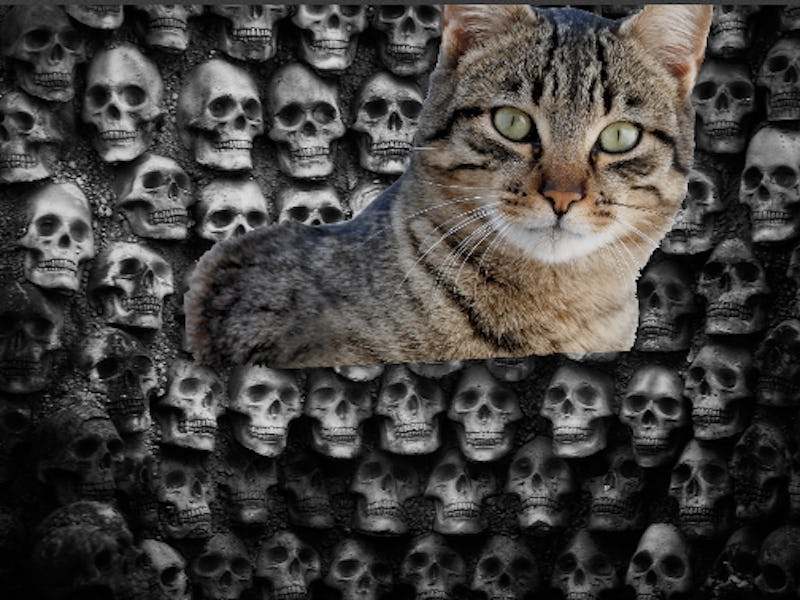Fear of Death Makes Cat Lovers Consider Pet Murder, Study Warns

Americans may be willing to spend an annual $60 billion on their pets, but bring up their mortality and they suddenly become okay with literally throwing Fido under the bus. This seemingly contradictory situation is supported by a recent psychological study that says humans are more likely to accept the killing of animals after they’re reminded of their own mortality.
Research led by University of Arizona doctoral student Uri Lifshin found that thinking about death primes people to increase their willingness to kill animals, regardless of whether that person self-identifies as a supporter of animal rights. Lifshin and his team write in the Personality and Social Psychology Bulletin that this fear of death is linked to a lowered sense of self-esteem.
Broadly speaking, this happens because humans feel better about their own mortality when they’ve asserted power over animals; the researchers didn’t find that being primed to think about death also made humans more willing to harm other humans.
“Death primes increased support for killing animals, but not for killing humans,” the researchers write. “This lends clear support for the notion that our effects are indeed related to terror management processes rather than to a purely cognitive effect of death-related cognition.”
Death priming.
The research team came to this conclusion after completing a two-part experiment. In the first study, all of the participants were asked how they felt about animal rights. Then, half of those participants were shown a “subliminal or subtle ‘death prime’,” as a statement on the paper put it. “Subtle,” in this case, means watching the word “death” flash against a computer screen or seeing an image of a “T-shirt featuring a skull made up of several iterations of the world ‘death’.” Instead of death imagery, the other half of the participants either show the word “pain” or “fail” combined with the image of a plain T-shirt.
Afterward, the researchers assessed the degree to which participants agreed with statements about killing animals, like “It is often necessary to control for animal overpopulation through different means, such as hunting or euthanasia” and “An experiment should never cause the killing of animals.” The researchers found that the people who saw the death priming were much more likely to agree with the statements that had to do with killing animals.
To see whether self-esteem was linked to this response, the second part of the experiment involved a self-esteem boost. Participants were told before the death priming experiment that they were actually involved in a study on word relationships, and as they made the association between the word “death” and other factors, the participants were praised by the experimenters. Interestingly, when the priming was paired with praise, the participants were much less likely to agree with the statements that supported killing animals.
The researchers believe that the participants’ initial willingness to kill animals after a death prime — and the subsequent abating of that willingness with praise — comes back to a concept called “Terror Management Theory.” According to this theory, the bodily existence of being alive reminds humans that one that they will die. Bummer! This turns into a constant existential crisis in which humans try to balance out the biological need to stay alive and the cognitive knowledge that they’re mortal. To try to feel less anxious, the researchers reason, humans attempt to create worldviews that give their lives a sense of meaning.
For some that may be religion, and according to this study, for others that may be the knowledge that while your uncontrollable doom is on the horizon, at least you can choose to say yay or nay to the doom of a vulnerable creature.